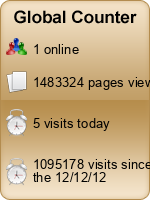Ngày cá tháng tư, còn gọi là ngày nói dối, là ngày hội
vui vẻ, hấp dẫn đối với những người tinh nghịch và hài hước. Ngày 1 tháng 4 là
ngày được chú ý ở nhiều nước. Đây là ngày mà theo phong tục cũ, bạn bè thường
hay bày trò đùa giỡn nhau.
Cá tháng tư dù không phải là ngày nghỉ lễ chính thức
nhưng vẫn được tổ chức tại nhiều quốc gia kỷ niệm hàng năm vào đúng ngày 1
tháng 4, bằng cách tung nhiều tin đồn hoặc nói xạo, nói đùa về rất nhiều chủ đề
khác nhau nhằm tạo niềm vui hay trêu chọc ai đó. Những tin giả như thế thường được
tung ra trong cả ngày 1 tháng 4 ở hầu hết các nước như Hoa Kỳ, Pháp,
Ireland,... trong khi một số quốc gia khác nó phải được chấm dứt vào giữa trưa
như Anh, Canada, Úc, New Zealand.
Đọc thêm
A Day for Fools
Every year on April 1, April Fools’ Day is celebrated in many countries around the world. In France, it’s called Poisson d’Avril or “Fish of April.” In Scotland, the holiday is often called “Gowkie Day.” In Iraq, the holiday is called Kithbet Neesan or “April Lie.”
History experts say people have celebrated April Fools’ Day
for a long time. Some believe the tradition comes from the ancient Romans more
than two thousand years ago. It was a day of playing games and pretending to be
someone else.
Others say the day for fooling began in France in 1564, when
King Charles changed the yearly calendar. He moved New Year’s Day from April 1
to January 1. Many people did not know about the change because of
communication problems back then. Some people continued to celebrate New Year’s
Day on April 1. Other people called them April Fools and played jokes on them.
In the United States, April Fools’ Day is just a day of
joking and playing tricks on friends. These kinds of jokes are also called
pranks. These jokes typically end in the prankster shouting “April Fools’!”
Simple pranks, like telling a friend a funny lie or making
prank phone calls, are still common. But, major companies also get in on April
Fools’ Day fun in a much bigger way. A few years ago, on April 1, Starbucks
announced it was introducing new coffee cup sizes -- Plenta and Micra. The very
large cups, bigger than a human head, remained useful for customers even after
finishing all that coffee. According to
Starbucks, the cups could be used as a rain hat, a pot for plants, or a
lampshade.
It did not take long for customers to catch on to the prank!
More and more, people use social media or smart phone apps
to play pranks on their friends on April Fools’ Day. One very annoying smart
phone app, Cat Facts, sends funny facts about cats to your friends’ phones,
every day.
And sometimes, simple, more traditional April Fools’ pranks
go viral on social media. Last year, a class of college students in the U.S.
state of Michigan played a prank on their professor. The professor had a
classroom rule that, if a student’s phone rings during class, the student must
answer it using the speakerphone. This means the whole class gets to listen to
the conversation.
One student decided to teach the professor that his rule
could be dangerous. She planned for a friend to call her, pretending to be
someone from the Pregnancy Resource Center. On speakerphone for the whole class
to hear, the friend announced the news that the student’s recent pregnancy test
was positive. The professor quickly got embarrassed and told the student she
should turn off speakerphone.
The student responded, “That’s okay. I’ve been expecting
this. I already know what I’m going to name the baby. The first name will be
April, and the middle name will be Fools!”
The professor, of course, quickly caught on to the joke, and
was quickly relieved!
The social media-savvy students posted a video of the
classroom prank on YouTube. One year later, the video has more than 38 million
views.
Do you have any ideas for April Fools’ Day pranks? Have your friends played pranks on you before? Tell us about one in the comments section!
___________________________________________________________
Words in This Story
pretend – v. to act as if something is true when it is not
true
prank – n. a trick that is done to someone usually as a joke
prankster – n. a person who likes playing pranks.
get in on – phrasal verb. to become involved in
catch on – phrasal verb. to understand what is meant or how
to do something.
viral – adj. relating to or involving an image, video, piece
of information, etc., that is spread rapidly and widely from one Internet user
to another.











0 nhận xét:
Đăng nhận xét
NH mến chào bạn, cám ơn sự đóng góp và chia sẻ của bạn.